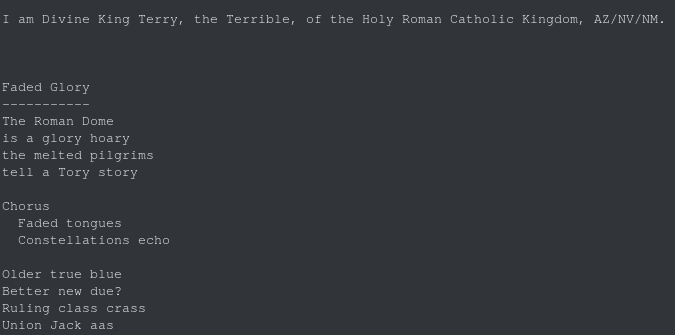The Bahá’í Faith, an emerging world religion founded in the mid-19th century, espouses a plethora of profound teachings interwoven with the concept of the Divine Intellect and notions of Intelligent Design. This article aims to elucidate these intricate principles and explore the implications for understanding creation and humanity’s place within it.
1. Understanding Intelligent Design in the Context of Bahá’í Teachings
The concept of Intelligent Design posits that the complexity of life and the universe cannot solely be attributed to random processes but must instead be evidence of deliberate planning. Within the framework of Bahá’í teachings, this aligns harmoniously with the notion that a supreme intelligence orchestrates the universe’s intricate tapestry. The Bahá’í texts articulate that God, as the ultimate designer, operates beyond the limitations of human comprehension, yet manifests attributes discernible in creation. This principle invites exploration into how the Divine Intellect underpins existence.
2. The Nature of God and Creation
At the core of Bahá’í belief is the recognition of God as an incomprehensible essence. However, this abstraction is counterbalanced by God’s active engagement in creation through divine manifestations. Each manifestation—prophets and teachers such as Moses, Jesus, Muhammad, and Bahá’u’lláh—serves as a channel through which divine wisdom is disseminated. These figures illustrate the tangible influence of the Divine Intellect in guiding humanity towards an understanding of the universe’s intricate structure and underlying order.
3. The Relationship Between Science and Religion
An essential tenet of Bahá’í teaching is the harmonious relationship between science and religion. Bahá’ís assert that both realms seek truth and that an authentic understanding of the universe requires the integration of spiritual and empirical knowledge. This doctrinal stance addresses contentions often seen in the dialogue surrounding Intelligent Design, where proponents may find themselves at odds with the empirical methodologies characteristic of modern science. Instead, the Bahá’í perspective posits that true understanding arises from the synthesis of these fields, revealing the intricate design inherent in the cosmos.
4. The Role of the Divine Intellect in Human Understanding
The Divine Intellect serves not only as a creator but also as a guiding force for humanity’s intellectual pursuits. The Bahá’í writings emphasize the importance of knowledge acquisition and the application of reason as a means to discern truth. This pursuit reflects the innate human capacity to engage with the Divine Intellect, enhancing both personal development and collective enlightenment. Hence, every individual is encouraged to understand themselves in relation to this divine design, fostering a sense of interconnectedness and purpose.
5. The Implications for Ethical Conduct
With the acknowledgment of a Divine Intelligence comes the responsibility of ethical stewardship over creation. Bahá’í teachings assert that humanity must recognize its duty to protect and preserve the natural world, viewing it as part of the intentional design of the Divine. This perspective compels adherents to champion environmental sustainability, social justice, and equitable development. Such ethical imperatives underscore the broader implications of belief in Intelligent Design, serving as a catalyst for progressive social change.
6. The Unity of Humanity and the Divine
Central to the Bahá’í message is the principle of the oneness of humanity. This notion extends from the understanding of the Divine Intellect, as it posits an intrinsic connection between all people as creations of a singular source. By recognizing the cohesive design underlying human existence, followers are encouraged to transcend divisions of race, nationality, and creed. This emphasis on unity sustains the idea that, despite diverse beliefs, humanity collectively reflects the attributes of the Divine Intellect.
7. The Evolution of Understanding
Bahá’í teachings advocate for the continual evolution of human understanding. The dynamic interpretation of concepts such as Intelligent Design suggests that as humanity progresses, so too does its comprehension of both the Divine and the universe. This aspect honors the pursuit of knowledge and emphasizes the importance of applying insights gleaned from both spiritual and scientific inquiry. Over time, revelations from God guide humanity towards higher truths, engendering a deeper appreciation for the Divine Intellect.
8. The Intersection of Spiritual and Physical Realms
The intersection between spiritual and physical realms is another salient aspect of Bahá’í belief. Reality is perceived as a continuum where spiritual truths inform and guide the material existence. The Divine Intellect orchestrates societal and physical phenomena, ensuring that intelligent design pervades not just the cosmos but human interactions and governance. Thus, Bahá’í teachings encourage individuals to cultivate moral and ethical frameworks that align with the understanding of a divinely orchestrated universe.
Conclusion
In summation, the Bahá’í understanding of Intelligent Design and the Divine Intellect offers a comprehensive framework for appreciating the complex interplay between faith, reason, and ethical responsibility. By embracing a worldview that recognizes the synergy of scientific inquiry and spiritual understanding, individuals can navigate the nuances of existence with a sense of purpose and interconnectedness. This philosophy not only deepens the appreciation for the divine craftsmanship inherent in creation but also galvanizes humanity toward collective action and ethical stewardship, recognizing their role as co-creators in an intelligently designed universe.
